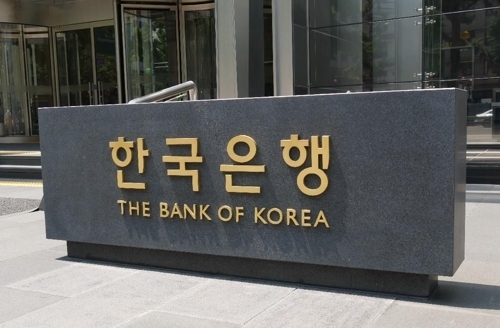[News Focus] Market tenses up on BOK’s imminent policy rate review
Central bank set to slash growth rate, uncertain over another rate cut
By Bae HyunjungPublished : May 26, 2020 - 16:37

South Korea is set to slash its yearly growth forecast this week amid the persisting COVID-19 pandemic and the global economic downturn, but market predictions continue to remain divided over the likeliness of policy rate adjustment.
While some view the additional rate cut as an inevitable move to shore up the virus-hit economy, others argue that the country should take prudence and first let its fiscal measures take effect in the market.
Also, the recently reshuffled composition of the monetary decision-making body further raised uncertainty in anticipating the central bank’s upcoming move.
The Bank of Korea will be holding its Monetary Policy Board meeting this Thursday to review the nation’s base interest rate and present the revised economic outlook for 2020.
The occasion will mark the first since the rate-setting board carried out a policy rate cut to a record-low 0.75 percent and also the first since three of the board members were replaced in April.
As the seven-member panel includes two ex officio members -- BOK Gov. Lee Ju-yeol and Deputy Gov. Yoon Myun-shik -- the latest replacement was a major realignment of the decision-making body.
The three new members are Cho Yoon-je, former ambassador to the US in 2017-2019, Suh Young-kyung, head of the Sustainable Growth Initiative and formerly first female BOK deputy governor, and Joo Sang-yong, economics professor at Konkuk University.
“Taking into account the estimated tendency of the new board members, along with the recent remarks by the governor, a rate cut scenario is plausible,” said Cho Young-mu, senior researcher at LG Economic Research Institute.
Kyobo Securities analyst Baek Yoon-min also claimed that the BOK is likely to take aggressive monetary actions to keep pace with the government’s expansionary fiscal policies, including the upcoming third supplementary budget.
Backing such rate cut anticipations, the interest rate for three-year Treasury bonds fell to a record low of 0.837 percent as of last Friday, according to the Korea Financial Investment Association.
Dissenters, however, suggested that the BOK will for now maintain a wait-and-see approach to let the latest “big cut” take effect in the market. Of them, some pointed out that a rate change decision could wait until July, when the government’s additional extra budget plan takes shape.
Earlier in February, before the impact of the new coronavirus spilled over to the rest of the world, the BOK lowered its forecast for the nation’s gross domestic product to 2.1 percent for this year, down 0.2 percentage point from a year earlier.
But as the epidemic crisis escalated here and abroad in the following months, demands mounted on monetary easing actions to boost the stalled domestic market, which led the central bank to cut the base interest rate by a drastic 50 basis points to an unprecedented 0.75 percent in March.
In April, Korea saw its exports nosedive 24.3 percent on-year and its trade balance turn into the red for the first time in 99 months, according to the Korea Customs Service. The accumulated export volume for the first 20 days of this month marked a 20.3 percent dip from the same period last year.
The domestic market also remained sluggish, with the consumer inflation rate lingering at 0.1 percent on-year in April, according to data by Statistics Korea.
Last week, the Korea Development Institute forecast that Korea’s economy is likely to expand 0.2 percent this year, adding that the figure could dip to minus 1.6 percent, depending on circumstances.
This renewed figure raised alarm bells as the state-affiliated think tank has often been inclined to take an optimistic view of the economy, compared to the private institutions’ cautious approach.
By Bae Hyun-jung (tellme@heraldcorp.com)



![[Exclusive] Korean military set to ban iPhones over 'security' concerns](http://res.heraldm.com/phpwas/restmb_idxmake.php?idx=644&simg=/content/image/2024/04/23/20240423050599_0.jpg&u=20240423183955)

![[Graphic News] 77% of young Koreans still financially dependent](http://res.heraldm.com/phpwas/restmb_idxmake.php?idx=644&simg=/content/image/2024/04/22/20240422050762_0.gif&u=)



![[Pressure points] Leggings in public: Fashion statement or social faux pas?](http://res.heraldm.com/phpwas/restmb_idxmake.php?idx=644&simg=/content/image/2024/04/23/20240423050669_0.jpg&u=)









